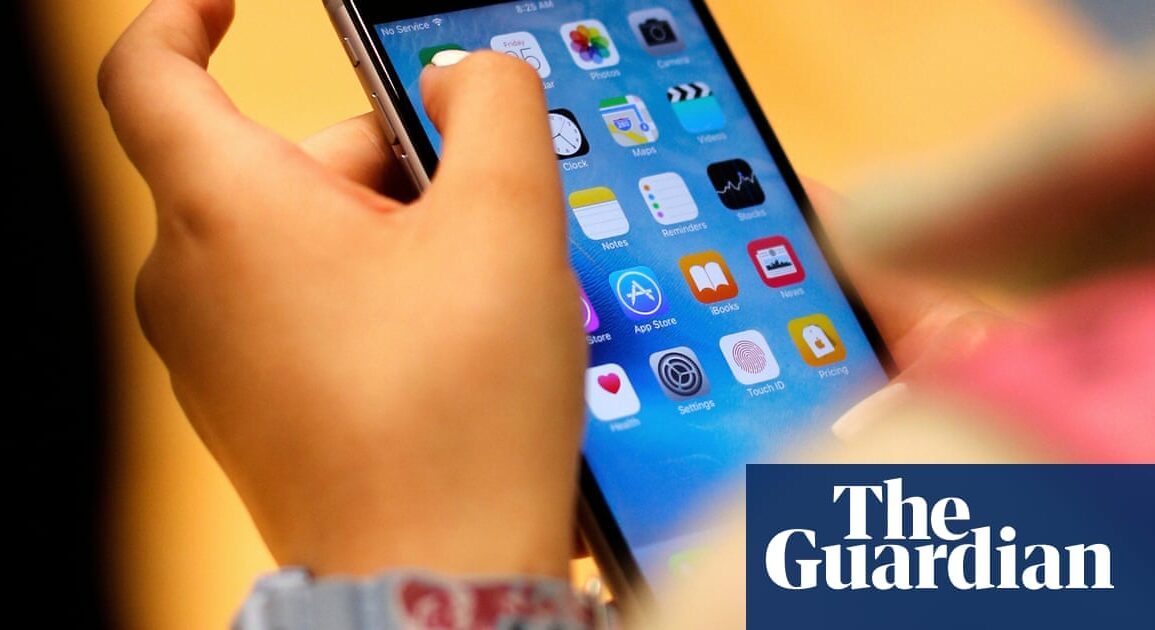
The technology trial for Australia’s social media ban is “broadly on track”, the government says, despite a month-long delay of a key report on the best ways to keep under-16s off the platforms.
It comes as the company behind the age assurance trial has revealed only one type of technology has been tested on children so far and some internal stakeholder concerns about how young people may circumvent the age ban systems.
The federal government has also been sitting on a separate report, costing more than $275,000, that it commissioned last year on Australians’ attitudes to age assurance technology. It was delivered to the government on 2 January but has not yet been released.
The UK-based company recruited to run the trial, Age Check Certification Scheme (ACCS), was due to publish its age assurance report in June.
The report will focus on which technology could be used to prevent under-16s gaining access to social media and under-18s accessing adult websites.
The federal communications department has confirmed the ACCS report would now be delivered in July and the minister would decide when to publish it, a spokesperson said.
“The independent trial of age assurance technologies remains broadly on track, in line with project delivery timeframes,” the spokesperson said.
Briefing documents from Senate estimates in February, released under freedom of information laws, stated the final report “is due in June 2025”. ACCS had previously stated the report was due “at the end of June” and it would independently publish it.
One of the first tasks for the new communications minister, Labor’s Anika Wells, will be to assess the outcome of the trial, to decide which technologies are applicable and to which platforms they will apply.
Affected platforms must have age assurance systems in place by December. Wells must be satisfied that the platforms – expected to include Facebook, Instagram, TikTok and Snapchat – are taking reasonable steps to stop under 16s accessing their services.
In an update on the age assurance trial from ACCS last week, it said the only type of technology trialed so far is facial age estimation tech, which examines a photo or video of a user to try to estimate the age based on their facial features.
A total of 1,580 tests have been conducted on 485 students, in years 7 to 12.
Aside from this testing, further work has been limited to interviews with dozens of potential vendors, and statements outlining how their age ban enforcement technology could work.
The trial will try to confirm those claims through “a combination of practical testing and a vendor interview”. About half of the interviews have been completed.
Technologies deemed sufficiently mature to include in the final report will be tested by another company – the Australian-owned KJR – or through schools testing or mystery-shopper type testing.
Mystery-shopper testing is a “real-world environment, where users will have a variety of equipment, light conditions and access to required resources, be that an ID document or a bank account”.
ACCS said there will only be “enough testing” to confirm claims made by vendors “and that may be achieved with a relatively modest level of practical experimentation”.
The March meeting minutes for the stakeholder advisory board overseeing the trial reported stakeholders had raised concerns about gaps in the testing, particularly around how children may circumvent the age ban systems.
A spokesperson for the department said a preliminary report, provided in April but not released publicly, gave the government “anticipated findings in relation to age verification, age estimation, age inference, successive validation, parental control and parental consent methods”.
Sources close to the trial told Guardian Australia they believed it was unlikely the report on the trial would be finalised by the due date – or that, if it was, it would have not been adequate to inform government decisionmaking on the best technology to use.
One concern raised was that other countries, including New Zealand and the United States, are looking to Australia’s trial to guide their own plans. Those who supported the policy wanted it implemented correctly, rather than rushed through with technology that could later present privacy or other issues.
The Social Research Centre was commissioned in August, and paid $278,000, to research attitudes to age assurance. This included an online survey of 3,140 adults and 870 people aged 8 to 17 years.
A spokesperson for the department said it was a matter for the minister on when that report, delivered to government in January, would be released.
A spokesperson for the Albanese government did not directly respond to questions on the timing of the tech trial report or the Social Research Centre report release.
“The government looks forward to receiving the age assurance report and progressing our reforms to protect children from social media harms,” the spokesperson said.
This post was originally published on this site be sure to check out more of their content








